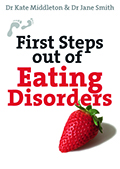Help For You
Help At Every Step
If you've noticed you're experiencing distorted thoughts and behaviours around food or eating and are concerned you might be developing a problem, it's important to talk through some of your concerns and seek information and reassurance. EDA is here to listen to any worries you may have and to talk through some of the signs of an eating disorder, offering guidance and information about the support we can provide and the relevant professional help for you.
We are here to listen to you and support you wherever you are in your journey - whether you're actively struggling and just want someone to talk to, you're wanting to make some changes but don't know how, or are further along the road to recovery.
Ways to get in touch
We offer a range of ways to talk to us, receive support and understanding:
You can call our telephone helpline to speak to a member of our support team - 08500 1 22 555 and select option 1 for support for you, or option 2 for family and friends.
You can email our support team
You can attend our free weekly drop-in in central Bath
You might also like to check out our resources including our book, 'First Steps out of Eating Disorders'. We'll also be adding a brand new online recovery support course very soon.

First Steps out of Eating Disorder by Dr Kate Middleton and EDA's Jane Smith
This book helps those struggling with food and eating to look at the subject of recovery in a gentle way, helping them to decide if they're ready to take some first steps to making changes. To order, please visit our shop.
We can help
If you can identify with one or more of the following thoughts or behaviours and would like to talk to a member of EDA's support team, please get in touch.
Anorexia Nervosa
-
Constant thoughts about food, including thoughts about how to avoid meals, reduce calories etc.
-
Continuing weight loss
-
Weighing yourself daily and feeling compelled to do so
-
Irregular periods or periods stopping completely
-
Seeing yourself as large despite being underweight
-
Wanting to be left alone
-
Believing that losing weight will create happiness and success
-
Repeating to everyone concerned that you're fine
-
Avoiding socialising
-
Eating alone
-
Hiding in loose fitting clothes or choosing very small clothing
-
Feeling cold
-
Feeling compelled to exercise, exercising at intensity and/or for longer sessions more frequently
-
Using laxatives or diuretics in a bid to help lose weight
-
Thoughts about hurting yourself or using self-harm to cope
Bulimia Nervosa
Many people assume that to have an eating disorder you have to be underweight. This is not the case. Most people struggling with Bulimia Nervosa or a purging form of disordered eating are at a normal weight and often feel that because of this, they're fine and don't need any help. This is not true and Bulimia Nervosa can cause very serious (sometimes life-threatening) physical complications. For people who have been struggling for a long time, they can feel overwhelmed with desperation - feeling that they're not being heard or taken seriously, feeling completely alone and suffering in silence. Please be reassured that you are not alone - EDA: Eating Disorder Advice is here for you. You can read about our support services here.
Some Signs
-
Making yourself sick after food or mealtimes and feeling compelled to do so by emotions such as guilt, fear and anxiety.
-
Swollen salivary glands
-
Skipping meals and trying to go without food for long periods of time
-
Buying in large quantities of high-sugar foods or foods that you believe are forbidden and keeping them in a specific place - e.g a cupboard, draw.
-
Feeling compelled to exercise, exercising at intensity and/or for longer sessions more frequently
-
Using laxatives or diuretics in a bid to help lose weight
-
Constantly feeling under the weather and struggling with colds, flu, infections
-
Problems with teeth or gums
-
Experiencing difficulties going to the loo, feeling bloated or experiencing heartburn
-
Irregular periods
-
Fluctuations in mood and emotions
-
Thoughts about hurting yourself or using self-harm to cope
It's important to access help as soon as possible, so please get in contact with EDA today. You can call our Support Line on 08500 1 22 555 or email us at support@eatingdisordersadvice.co.uk